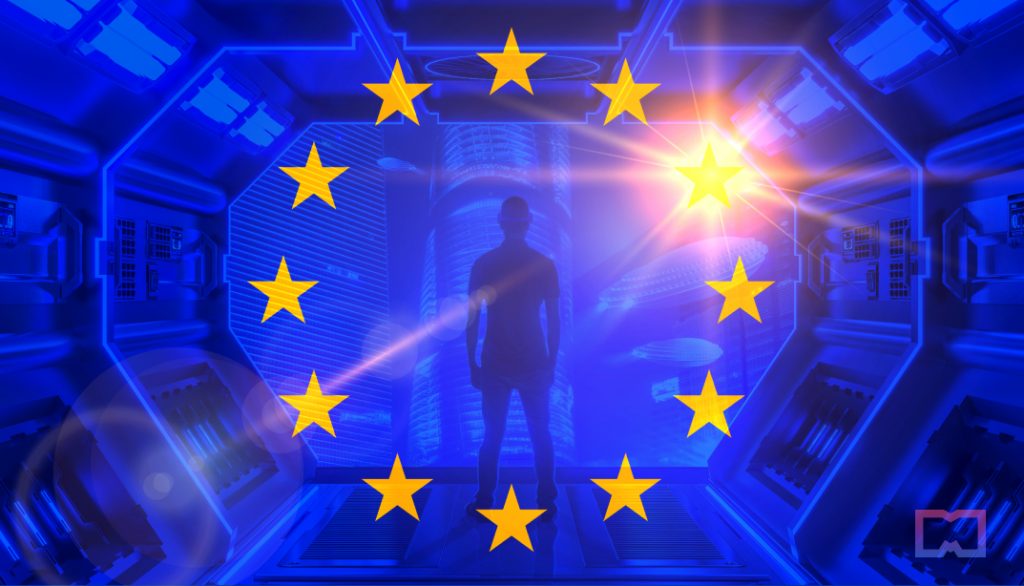European Commission adds metaverse into its digital strategy, wants to foster virtual worlds


In a speech to the European Parliament, European Commission President Ursula von der Leyen called out the metaverse in a speech outlining her vision for the EU’s digital strategy. In the letter of intent, von der Leyen presented new initiatives for 2023, which included the “digital age” —initiative on virtual worlds and metaverse.
“We will continue looking at new digital opportunities and trends, such as the metaverse. It also means continuing the work on investment and reforms through NextGenerationEU, of which 700bn EUR remains to be invested in the years ahead,”
von der Leyen said.
In a LinkedIn post, European Commissioner for the internal market, Thierry Breton, outlined three crucial aspects of fostering virtual worlds.
- People: The atmosphere inside the virtual world must reflect European values. Everyone should feel safe in the metaverse just as they do in real life. By working with the Digital Services Act and Digital Markets Act, Europe will have the necessary tools to regulate the virtual world.
- Technologies: One of the key factors in developing a metaverse will be Europe’s ability to expand on the latest technologies and create a sustainable ecosystem within the virtual world. Fortunately for Europe, they have good research and innovation for software and platforms.
- Infrastructure: The constantly evolving metaverse will require a connective infrastructure to build new systems, mainly due to a large amount of data being stored and transferred via these technologies.
Breton introduced the “Virtual and Augmented Reality Industrial Coalition” that unites stakeholders from core metaverse technologies. It includes a roadmap endorsed by over 40 EU organizations (metaverse-related) from different sized organizations and academic entities.
The EU is also funding research and breakthrough technologies supporting the metaverse in various areas, such as photonics, semiconductors, or new materials.
The digital age is reshaping our economy and society. The European Union cannot be left behind as technology changes everything we know about work, education, and social interaction. The EU needs to begin preparing for the future—and that means creating policies and regulations that encourage innovation in technologies like augmented reality, virtual reality, and AI, as well as competing with other nations in technology development and deployment.
South Korea and the United Arab Emirates have already made plans for national metaverse development. The South Korean government invested $177 million to support metaverse-related businesses and jobs. UAE’s Dubai released a metaverse strategy that adds $4 billion to the national economy in five years. Shanghai also plans to grow a $52 billion metaverse industry by 2025.
Read related posts:
Disclaimer
In line with the Trust Project guidelines, please note that the information provided on this page is not intended to be and should not be interpreted as legal, tax, investment, financial, or any other form of advice. It is important to only invest what you can afford to lose and to seek independent financial advice if you have any doubts. For further information, we suggest referring to the terms and conditions as well as the help and support pages provided by the issuer or advertiser. MetaversePost is committed to accurate, unbiased reporting, but market conditions are subject to change without notice.
About The Author
Agne is a journalist who covers the latest trends and developments in the metaverse, AI, and Web3 industries for the Metaverse Post. Her passion for storytelling has led her to conduct numerous interviews with experts in these fields, always seeking to uncover exciting and engaging stories. Agne holds a Bachelor’s degree in literature and has an extensive background in writing about a wide range of topics including travel, art, and culture. She has also volunteered as an editor for the animal rights organization, where she helped raise awareness about animal welfare issues. Contact her on [email protected].
More articles

Agne is a journalist who covers the latest trends and developments in the metaverse, AI, and Web3 industries for the Metaverse Post. Her passion for storytelling has led her to conduct numerous interviews with experts in these fields, always seeking to uncover exciting and engaging stories. Agne holds a Bachelor’s degree in literature and has an extensive background in writing about a wide range of topics including travel, art, and culture. She has also volunteered as an editor for the animal rights organization, where she helped raise awareness about animal welfare issues. Contact her on [email protected].














